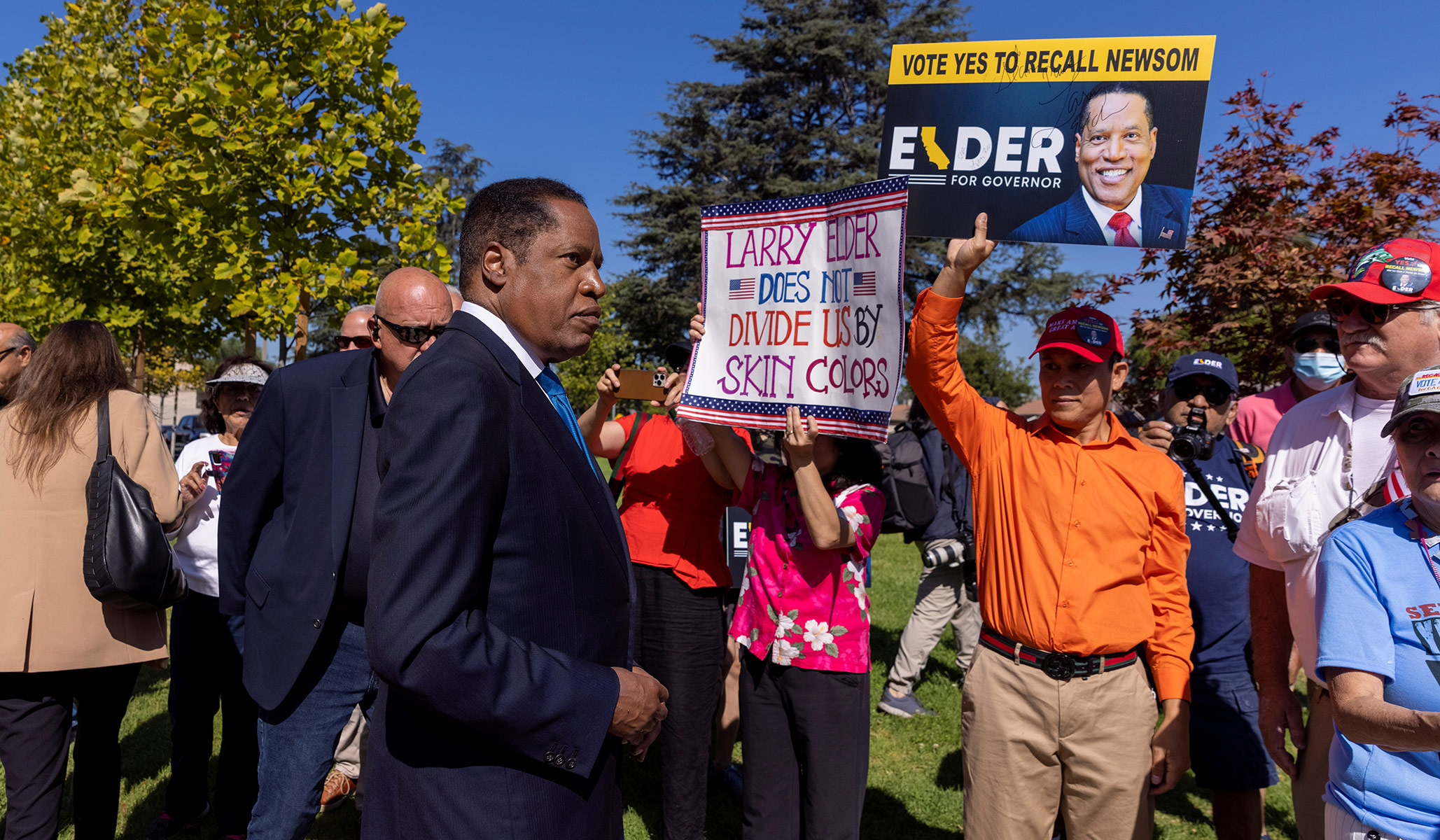First, the California recall ended the way anyone who has followed California politics in the past three decades would normally have expected. With the exception of Arnold Schwarzenegger in 2003 and 2006, no Republican has broken 45 percent of the vote in a statewide election for president, senator, or governor in California since 1994. At the presidential level, Democrats have carried California by at least 23 points and 3 million votes in each of the past four elections; only Hawaii and D.C. have consistently given Democrats wider margins. In Senate races, thanks to California’s bizarre jungle-primary system, Republicans haven’t even had a candidate on the November ballot in almost a decade. It’s one of nine states in which Republicans have now gone 15 years without a win in the big three statewide elections, the others being Washington, Oregon, Delaware, New York, Hawaii, Rhode Island, Minnesota, and Connecticut. (Virginia, which last elected a Republican in 2009, is next on that list.) In short, it is as hard a place for Republicans to win an election as any state in the union. No matter how excited people got about the possibility of finally breaking that streak, and no matter how the polling looked for a while, Gavin Newsom beating Larry Elder is a dog-bites-man story.
This is also why it is silly to blame election fraud — something Elder himself has not done, as he conceded the race — when the lopsided Democratic win is the baseline, expected outcome.
Second, recalls are stupid and should be eliminated, or at least require a supermajority vote. Recall elections for governors are a Progressive-era gimmick, and like other electoral gimmicks — runoffs, the jungle primary, ranked-choice voting, dividing electoral votes by congressional district — they run against the grain of the American system of two-party democracy. This is the fourth of these elections in our history, with two successful recalls and two failed ones. There is no substitute for building the broadest possible coalitions at periodic elections through the two-party system, and California should eliminate both the recall and the jungle primary.
Third, blaming Larry Elder for the outcome is treating the symptom and not the problem. True, it would have been easier to win this race if it were a pure referendum on Newsom, and the emergence of a clear Republican front-runner made it easier for Newsom to frame this as a binary choice. But this is not a regular election, in which the goal was to run a candidate who could make a positive case for a majority. The only way the recall would have succeeded is by having a lopsided enthusiasm advantage for Republicans. Polls showed that early, but the California Democrats have a superior organization and more voters, so they were able to activate enough of their people to make the result a more traditional one. And in any event, Elder would not have been able to do much as governor, and would surely have lost in 2022. The problem is that Republicans do not have a candidate and message that appeal to a majority — or even a plurality — of Californians, or anything close to that. It’s that simple.
Four, exit polls showed (compared to 2020) white college-educated voters swinging even further to Democrats, about a 5–6 point erosion of the Democrats’ advantage with black voters and the Republicans’ advantage with white noncollege-educated voters . . . but over a 30-point swing to Republicans among Hispanic voters. The Yes vote got 44 percent of white voters, 42 percent of Hispanics (including 47 percent of Hispanic men), 38 percent of Asians, and 19 percent of black voters. Those are actually all good numbers for Republicans except the white voters, who made up 56 percent of the electorate, lower than in most of the country but higher than in a typical general election in California. What does that mean? It means that the model of starting with a lead among white voters that works elsewhere in the country is unworkable in California, but also that Democrats are losing ground among Hispanics, and fast. My bet is that, when Republicans finally win a race again in California — and they will, because nothing is forever in American democracy — it will be behind a Hispanic candidate who builds a message that wins an actual majority of the Hispanic vote. That may be someone who looks and sounds different than, say, Marco Rubio in Florida, Ted Cruz in Texas, Susanna Martinez in New Mexico, or Brian Sandoval in Nevada, because California’s demographics and culture are different. But it is the likeliest path to assemble something that actually flies.
